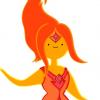What makes an RTS game stand out?
I'm currently about finishing the story and initial planning stages of an RTS game I plan to build over the next several years (With some help of course!).
I thought it would only be beneficial to get feedback from my peers to make the game just that much better. So, the question is, what makes an RTS game stand out to you?
My all time favorite RTS is Company of Heroes. What made it stand out was the way the game forced you into constantly fighting and trying to fight attack your enemy. It also had squads which is a feature I really really like because it reduces the number of command units you have to deal with. It also incorporate cover really well. It also had things like suppression, pinning, and retreating which really upped the tactical decision making of the game. Most RTS games are rather bland with their combat IMO, but the way they did it in Company of Heroes was great.
RTSs stand out when they go all in on something. RTTs like CoH are one example. Grand strategy like CK2 is another. Simulated troops like Majesty is another. Basically don't try to mix it up too much unless you really know what you are doing or you are mixing in something completely new. RTS games like WBC3 have average economy and combat but they spin in a shit ton of RPG to make them stand out. Perimeter added unit transformation but was otherwise nothing more than Total Annihilation. Stronghold had a semi okay economy but was mainly notable for its extensive fortress simulation with siege and walls.
Some games stand out with a shit ton of balance and/or polish like Blizzard games, even if their economy is boring.
Basically you need to pick one aspect and do it REALLY well. In a way that hasn't been done. Or you could take one game and make a more polished version, but that's unlikely since you are indieish.
Here is a list of things I think make a RTS game stand out.
Units:
Many types.
Strengths and weaknesses for ALL units..
Balanced factions.
Resources/Economy:
Interesting resource management systems.
Real time storage (as found in Supreme Commander) so if it blows up you loss your stored amount.
Community:
Pre-planned community structures so that players can enjoy playing against each other.
Teachers, these can be good for new players, not tutorials but real people willing to show how it's done.
Strategy:
Each unit/combination should have a strategy.
Terrain to compliment particular strategies.
Final Note:
Most RTS games require an investment of about an hour or more per session with no external reward or a reward system which feels like a fancy card game (AOE 3). Implementing a permanent base which allows you to invest in each battle would be good, make initial investment = advantage in current battle, this would work as a good community management, if you haven't already look at Ogame, you might get what I am saying here.
What makes any game stand out? Game Design is only part science, the other part is art. There is no checklist on how to make an RTS exceptional, or any game for that matter. Games tend to stand out, that either have exceptional good storytelling or a novel idea. That is the most general statement I could come up with.
You aren't a senior game developer I presume, if you are planning to produce a sellable game, I'd suggest to rethink your position. You would either have to compete with multi million dollar projects or search for your own niche. Both choices aren't easy.
I d suggest you think about your game, what is special and why people would like to play it and discuss it in the forums.
What everyone else has said is definitely valuable, but I'd like to ad that in an RTS the "crispness" of the controls and the overall UI is going to be a lot more important than in other genres. You need your units to turn on a dime, and you need a UI that works exactly as a player would expect it to with no delays or weird behavior. This is hard to do, and more than one RTS has failed despite having a good premise because of shortcomings in this very technical area.
Genuine diversity and multiple avenues to victory are also important IMO. With respect to the first point, players can see right through the reskinning and relabeling of units that are functionally identical. As an example, in a WWII game, the German Panzer IV and Soviet T-34 should usually not share the same speed, armor, range, firepower, maneuverability, etc. It's also important that the game is balanced in such a way that no one optimal strategy arises that renders all others obsolete. Some players like to rush out cheep units and disrupt other players while others like to establish an economy and build a massive force with upgraded capabilities. Others might want to sit back and play defense, hoping that other players run out of resources. You should decide what strategies you want to be viable in your game and make sure that you have provided the tools to make all of them accessible to a nontrivial number of players.
- Good readability in stressful environment, using textures, animations and UI alerts:
- Understanding if some resource is missing.
- Understanding if you are under attack, without cluttering interface with alarm
- Units and building easy to distinguish
- Fairness: as the competitive side of it cannot be underestimated so being able to purchase advantages for real money is unfair and therefore ruins the game.
- A good balance between auto-control features and micro management. In Age of Kings you had units moving in formations, which suited its game-style. In Starcraft they clutter up into deathballs, which adds a skill-level when you try to deal with it. However, it can be off-putting for beginners.
- Strong limitation to resources in combination with lots of strategic/tactical options encourage player creativity.
- Related to this is a good expansion set management. Expansions tend to add overpowered stuff that feels like cheating, which I find boring. Keeping the player starving is what keeps the game interesting. Don't be afraid of starving the players!
- If you are developing a bigger title with an editor and using a component based engine - build in support for packaging and transfering of units, resources, spells, effects etc. This would help a possible modding community immensly.
- I usually find the early parts of RTS games much more interesting then the later part, because you have much more constraints. If you would innovate in the later parts so that the overly-cluttered bases and huge armies would become more interesting then that would be real feat!
- Town management is a fun part, but it has to be quick and easy to operate. I really like placing roads and other infrastructure and I miss out that kind of features in some RTS games.
- Army size vs. control: Most RTS games which I have played have been fun when you have smaller squads to control. Once they become larger it quickly becomes... unmanagable. It's more like large blobs that interfere with each other. Some games use formations to make it more managable, but that also reduces the fun part of microing the units. So perhaps you could consider adding different tools for managing large and small armies, that makes it more readable and fun.
Good balance, many viable strategies, need to react to your opponents' everchanging strategy.










